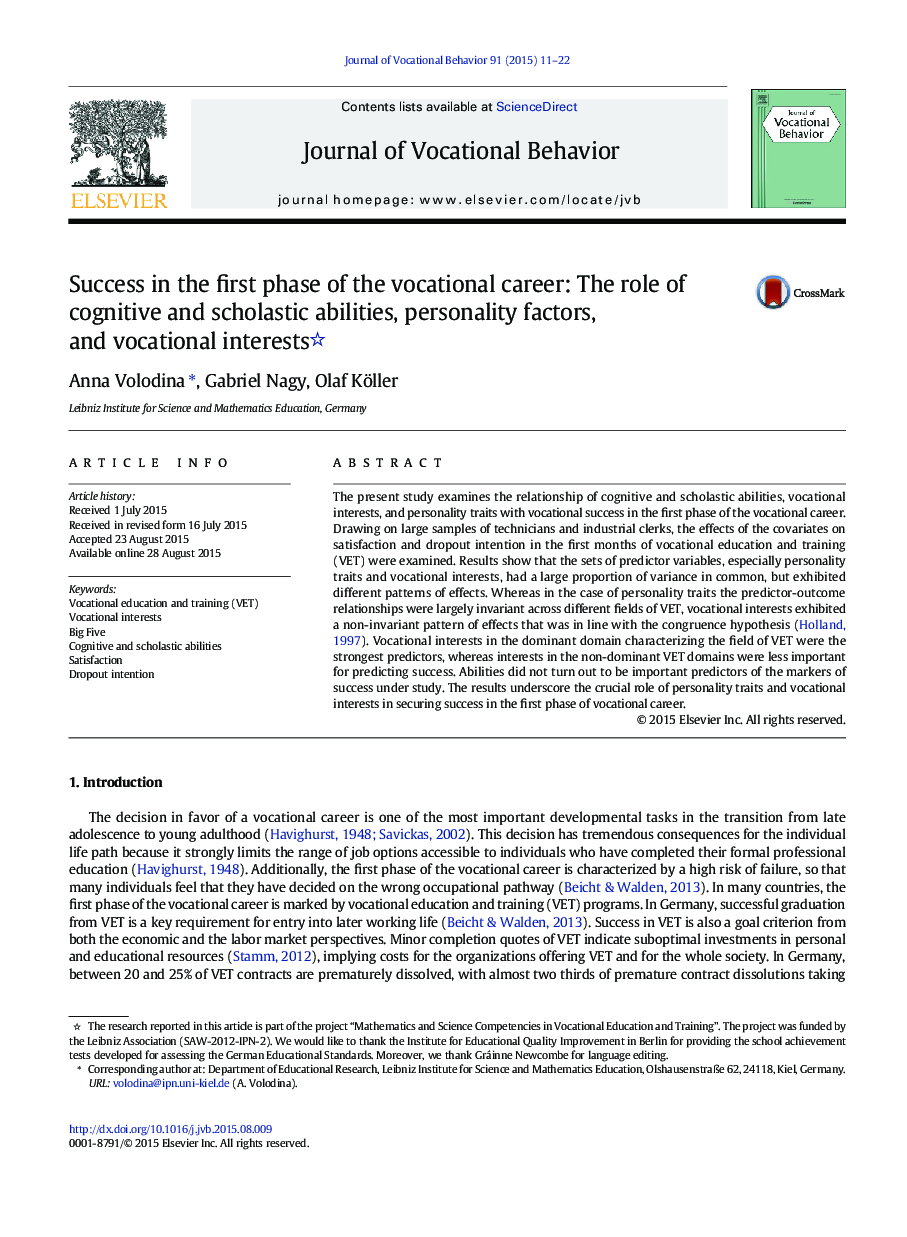| کد مقاله | کد نشریه | سال انتشار | مقاله انگلیسی | نسخه تمام متن |
|---|---|---|---|---|
| 886732 | 1471808 | 2015 | 12 صفحه PDF | دانلود رایگان |
• We examine the role of the individual predictors of success in the first phase of vocational career.
• Occupational satisfaction and stability were closely related to personality variables and vocational interests.
• The relationships of the Big Five markers were generalized across occupational groups under the study.
• Vocational interests exhibited a non-invariant pattern of effects in line with the congruence hypothesis (Holland, 1997).
• Cognitive and scholastic abilities played a rather minor role in the early phase of occupational careers.
The present study examines the relationship of cognitive and scholastic abilities, vocational interests, and personality traits with vocational success in the first phase of the vocational career. Drawing on large samples of technicians and industrial clerks, the effects of the covariates on satisfaction and dropout intention in the first months of vocational education and training (VET) were examined. Results show that the sets of predictor variables, especially personality traits and vocational interests, had a large proportion of variance in common, but exhibited different patterns of effects. Whereas in the case of personality traits the predictor-outcome relationships were largely invariant across different fields of VET, vocational interests exhibited a non-invariant pattern of effects that was in line with the congruence hypothesis (Holland, 1997). Vocational interests in the dominant domain characterizing the field of VET were the strongest predictors, whereas interests in the non-dominant VET domains were less important for predicting success. Abilities did not turn out to be important predictors of the markers of success under study. The results underscore the crucial role of personality traits and vocational interests in securing success in the first phase of vocational career.
Journal: Journal of Vocational Behavior - Volume 91, December 2015, Pages 11–22
